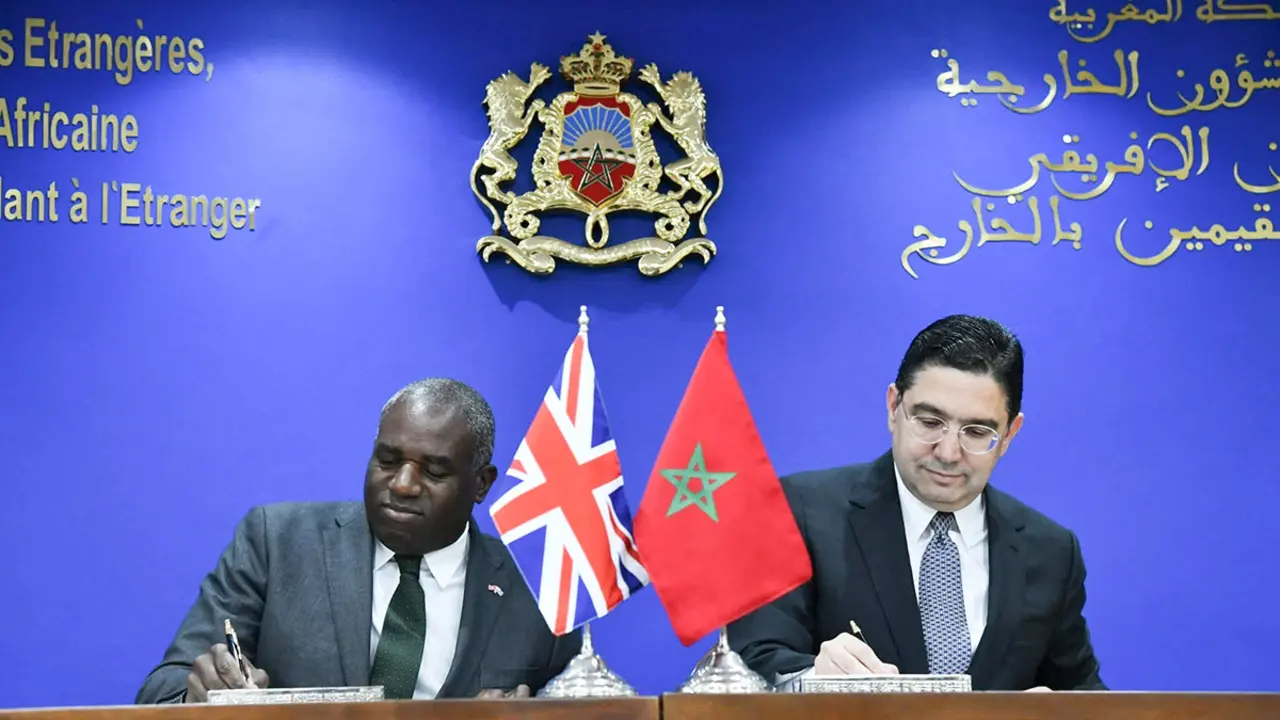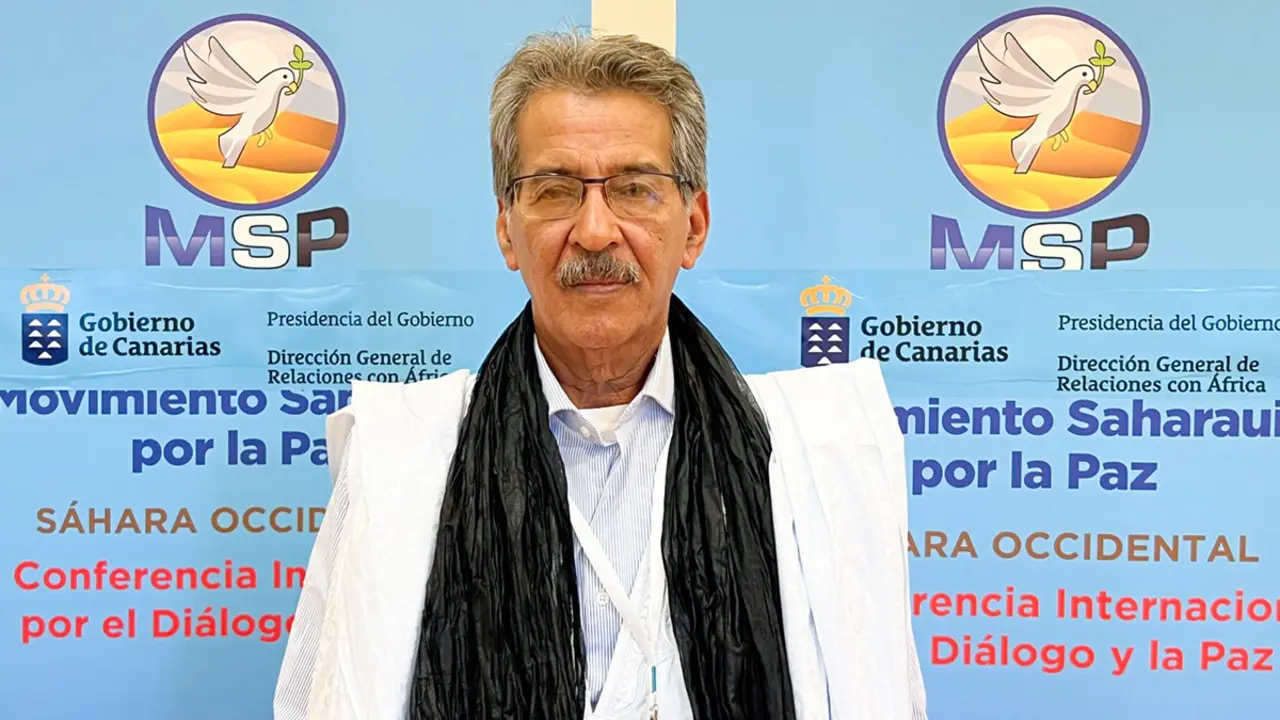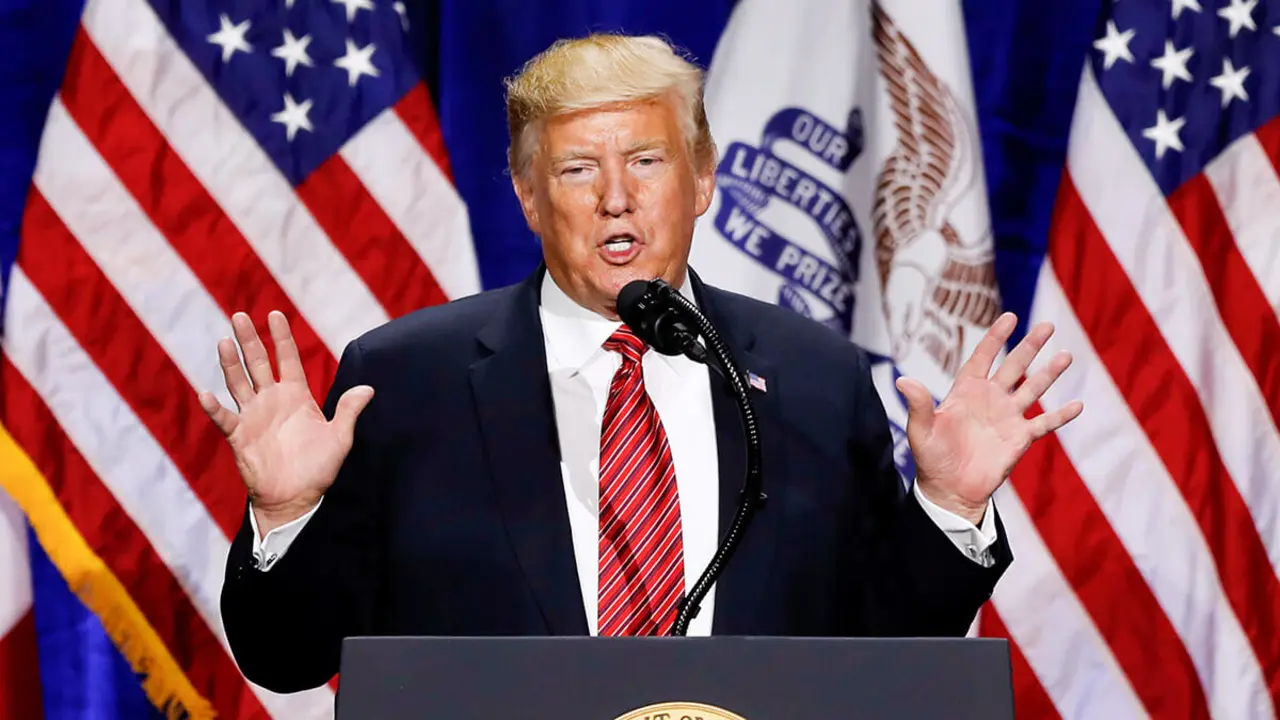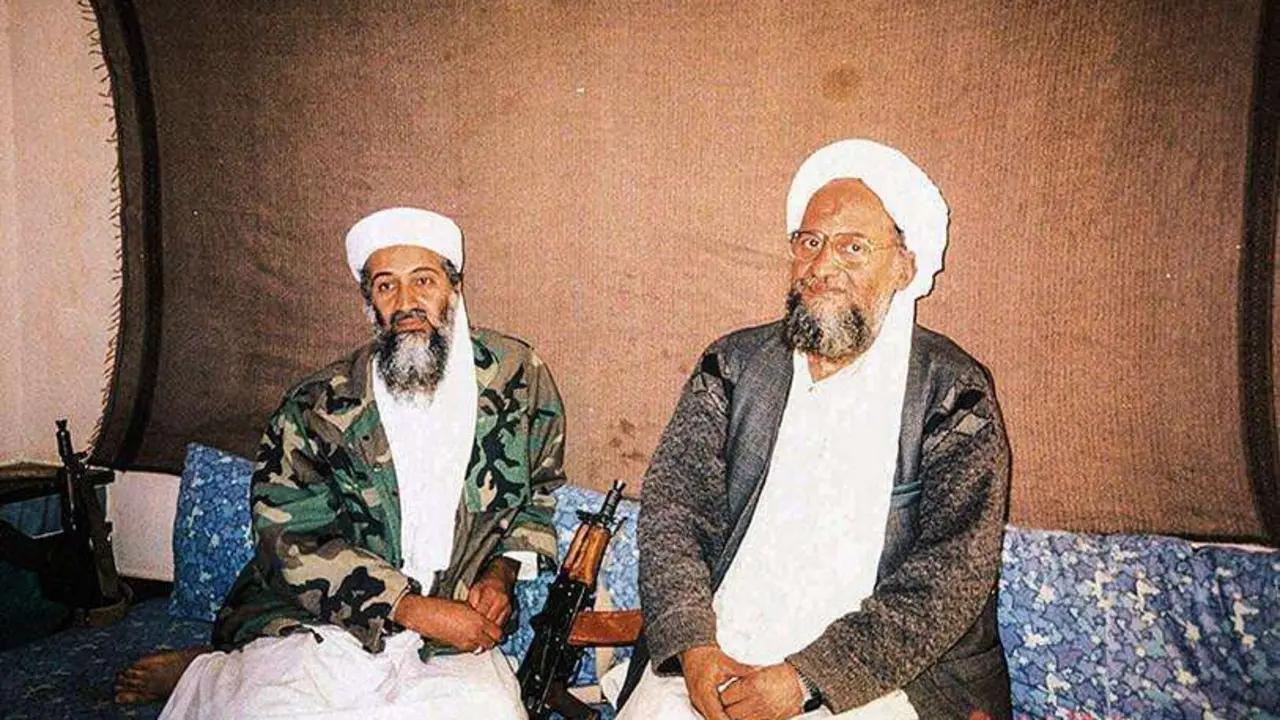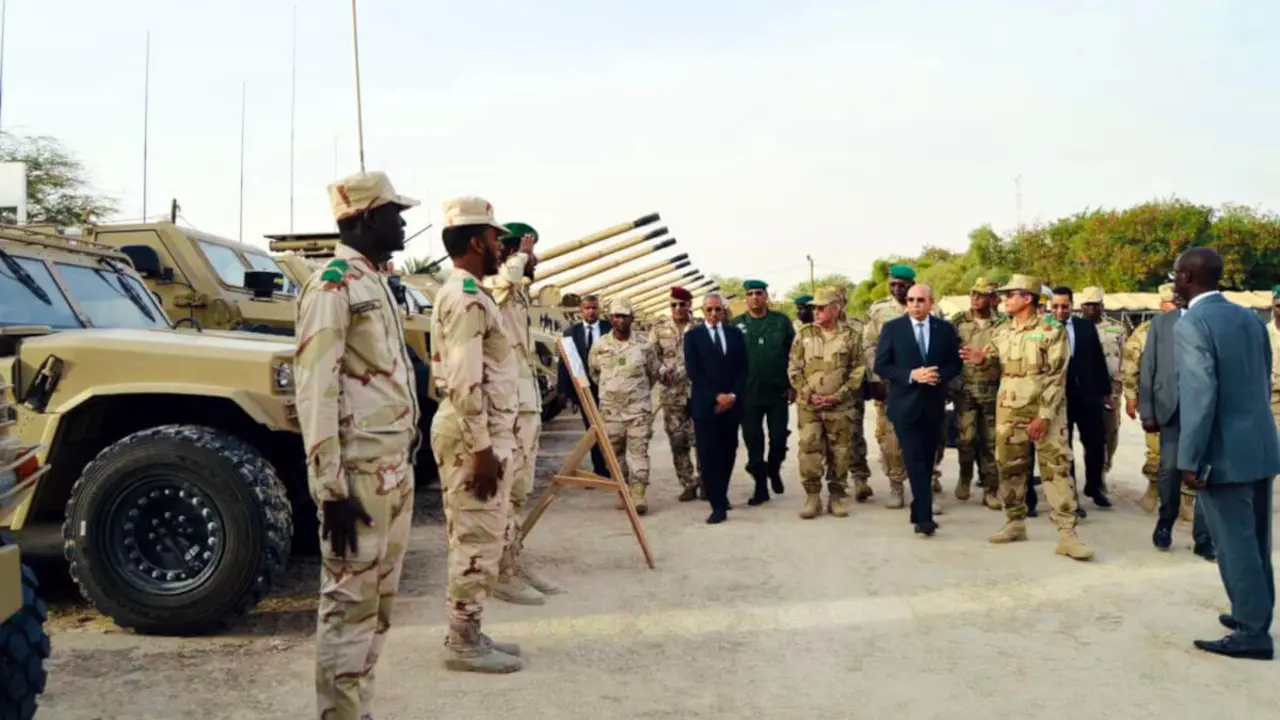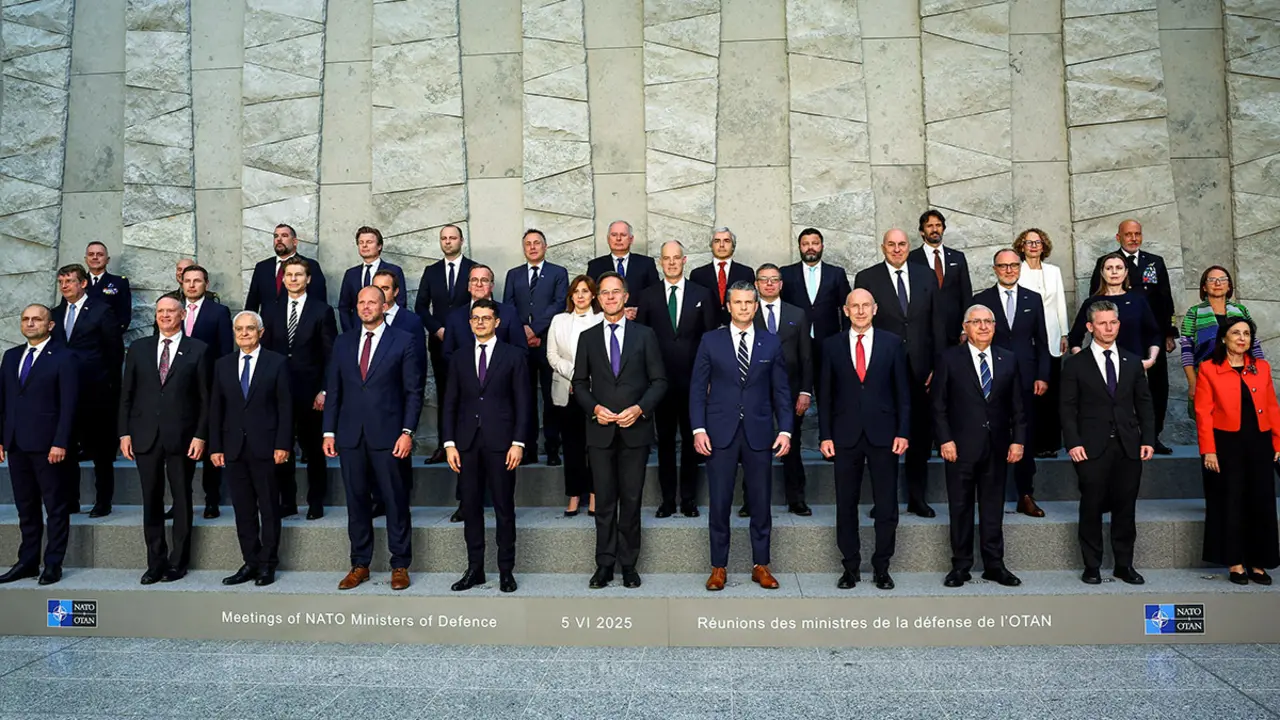Nadia Nahman: "Some African governments and organisations lack credibility"
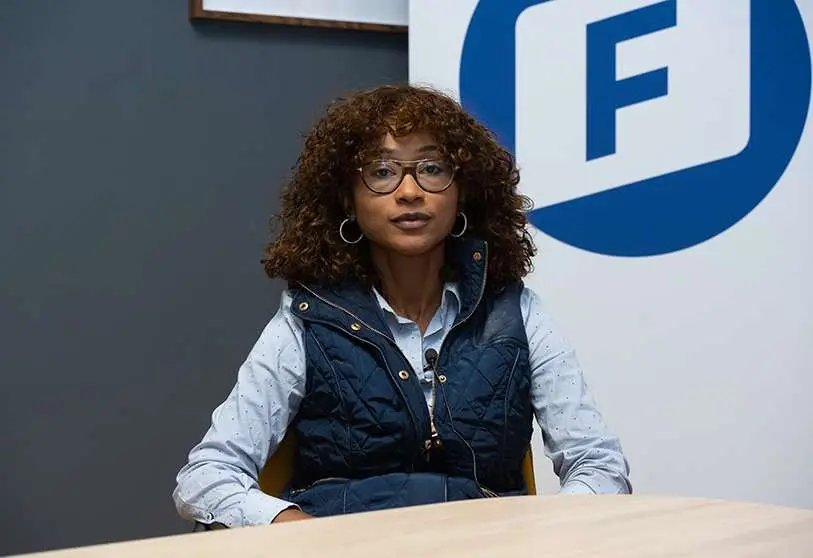
Nadia Nahman is the chief of staff and spokesperson for the president of the Union of Democratic Forces of Guinea (UFDG), the main opposition party. She is a young politician who is shaping the future of her country. The UFDG is likely to gain a seat in the Guinean government after the government reshuffle that will most likely precede the military phase that follows the coup that ousted Alpha Conde from power.
Nahman made his academic career outside Guinea, first in Morocco and then in France, at Sciences-Po Strasbourg, where he specialised in international law. He is currently completing his PhD at the French academic institution.
In October, Nahman, along with other members of a delegation of African liberal politicians, visited European institutions in both Brussels and Madrid through the Friedrich Naumann Foundation. The programme aimed to build good relations between African liberals, as well as with European partners, on important issues such as culture, trade and development, and security.

What conclusions and insights do you draw from this experience with the Naumann Foundation and your fellow liberals before returning to Guinea
I think the interesting thing is that the dialogue was intra and also extra, that is, between members of different delegations belonging to a sub-region, which is the West African sub-region, between Guineans, between Senegalese, between Ivorians, and also with Europe. The interesting thing is to see how we can make these liberal values, to which we attach so much importance, flourish beyond our borders. It is really the triptych that underpins the statutes of the Council of Europe, namely democracy, the rule of law and human rights. And it is the same triptych that is also found in the founding texts of the African Union and ECOWAS.
As far as ECOWAS is concerned, we have the 2001 protocol on good governance, elections and democracy, and also the African Charter. And as I like to say, the West African sub-region and at the continental level, we have a normative arsenal that has absolutely nothing to envy to the European system, to the European integration model on which our arsenal is modelled, but unfortunately, we must note that we lack effectiveness, the texts exist, but they are not applied. So the idea is to reinforce what we can do together for the continent and the sub-region, and how we can make this dialogue flourish. We believe deeply in the virtues of dialogue, and in the virtues of multilateralism as well.
Guinea has suffered particularly from a dialogue of the deaf because Mr Alpha Condé, in the fantasies he harboured about his third mandate, proceeded to unilaterally close the borders with Guinea-Bissau, with Senegal, with Sierra Leone, with Côte d'Ivoire, and economic exchanges have been really affected. So I think that when we talk to each other, new perspectives open up and, from the Spanish point of view, it is interesting to see to what extent Spain wants to put the African question at the centre of its political agenda and to look beyond the Maghreb. It is interesting to look beyond Morocco and beyond Algeria and to see that we have a sub-Saharan Africa that had a dynamic economy, held back by COVID, and that we must look beyond the Maghreb and see these actors, especially because they are the same actors that we find here in terms of migration.
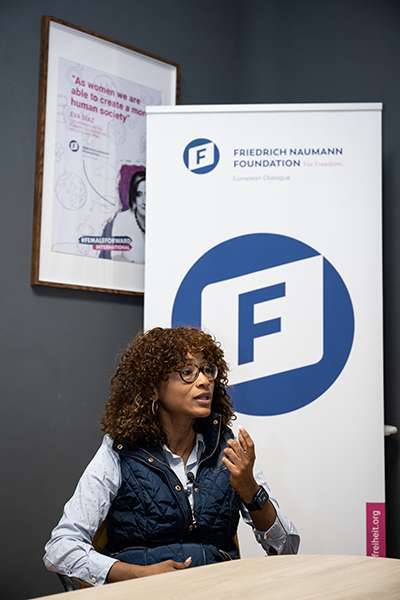
For you, what are the main changes that the new EU-Africa Action Path will bring in the future? Threats, opportunities.
I think we have to start from the premise that Guinea, Senegal or Mali are not the heritage of any one country. It is important to start from that and say that what we are seeing is a rupture. This rupture was proclaimed loud and clear in Emmanuel Macron's Ouagadougou speech to an amphitheatre full of students. And we can also see that the speech at the Montpellier meeting reinforced this paradigm. It is about breaking with all paternalism, breaking with all neo-colonialism, with all condescension. Now we are going to open a new chapter, now it will be a matter of liberating collective energies. This must not be done unilaterally, Africa has as much to learn from Europe as Europe has to learn from Africa. It is also a question of respect. And I think there is a balance between partners. The fact of talking to each other as equals, but then, I don't think we should get carried away either, because we know very well that there are inequalities. There are disparities and when there are states with which there are great disparities, it is difficult to talk on an equal footing. I belong to a generation of young Africans who have said to themselves "enough is enough". When you can't always find scapegoats, we have been independent for more than 60 years. We are young states, so at some point we have to question bad governance, we have to question the practices that take place and see how we move forward.
But going back to this paradigm, I think France, the United States and the European Union hide behind this principle of subsidiarity to say that they listen to African solutions to African problems. But in the specific framework of ECOWAS, it is precisely Guinea that has suffered from the absence of political dialogue with all the actors. Because when there is a breakdown of trust between actors internally, what do you do? We turn to the regional authorities. But the regional bodies are ECOWAS and the African Union. These bodies have a lack of credibility in the management of previous cases, for example in the management of the Malian case and even in the management of the Guinean case, in relation to the case of the constitutional change of Alpha Condé. Condé organised a double referendum and legislative elections on 22 March, under equally controversial conditions, at the price of murderous repression. There was no sense that ECOWAS would budge despite the intangibility of presidential term limits. So as long as ECOWAS has variable geometry management of affairs, we will have an unstable West African region because there is a resurgence of coups d'état that we do not see in the English-speaking African world.
What are the positions of African society in relation to this new European perspective? Is there a desire for understanding between people, or are hostilities still present in the streets?
I would like to put things in perspective. I think it is easy to fall into shortcuts according to which the anti-French sentiment is a young Guinean who is against the French. I think relations are relatively good, but as we saw during the riots in Senegal, we saw young people attacking French symbols such as Total or Auchan. For me, this feeling is a combination of several factors. First of all, there is always the colonial heritage that can appear because people want a scapegoat. It is easy to find one. That is the first element. There is also the question of the CFA franc. Or when you take the war in Libya, for example, and France's intervention in it. So I think the anti-French sentiment is rather against bad governance, but not against the French as such.
Do you think the diaspora plays an important role in these relations?
I think that if international organisations, NGOs and states tend to engage in dialogue with civil society, it is because they have difficulties in finding credible interlocutors with our states. Our states have lost their credibility in terms of governance. When there is money, it is difficult, even in terms of absorption capacity. We cannot absorb the development aid that is available because the projects that are put in place are not serious because of corruption. So here again there is a new paradigm that makes states put the diaspora at the centre of the issue. But beware, diaspora and civil society are not defined interlocutors. They are not political parties invested with democratic legitimacy. When we see Emmanuel Macron talking to these young Africans, it's all very well for the photos, but on whose behalf or what are they talking about?
Yet the diaspora is a formidable bridge. Real bridges between countries. And I am firmly convinced that diasporas are as attached to their country of origin as they are to their host country. In this, it is an opportunity. It is an opportunity because they are better informed about the realities and have a say.
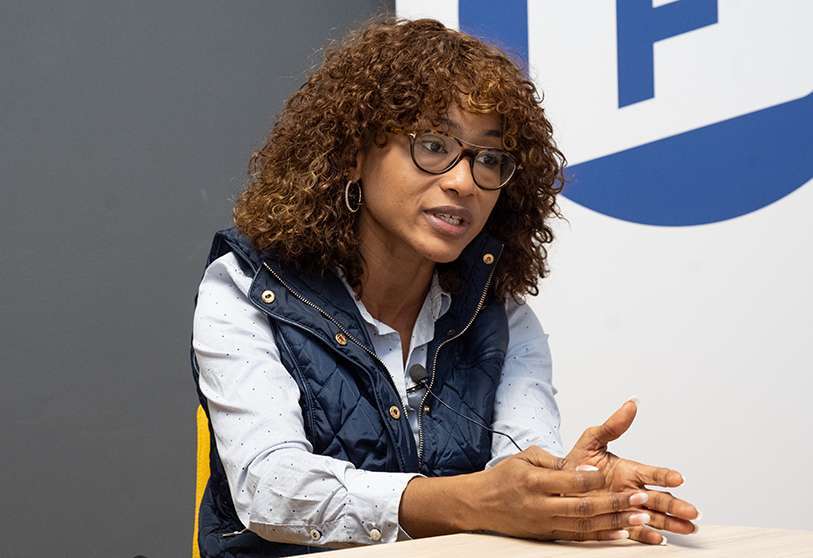
After this trip with the Naumann Foundation, are you already thinking of new ways to create exchanges and links between Africa and Europe?
Of course I am. I think exchanges should be bilateral and multilateral. I think the simple fact that you and I sit around a table and exchange, even if it is only for an hour about our countries. It breaks a lot of clichés. Because we notice that things are finally moving forward. So I think cultural exchanges are fundamental. I told the Spanish ambassador in Guinea that an Instituto Cervantes could build bridges. Every exchange makes us ambassadors of our countries.
And we must not go backwards, as happened a few years ago when Édouard Philippe was in power in France. When France decided to raise tuition fees, it was a case of going backwards. In France, if tuition fees for one year are 3,000 euros, I would have decided to go to China or India or anywhere else. Like Turkey, for example, which has had an increasingly aggressive presence in Africa for the last 20 years. It is something new to see African students going to Turkey, China and even India instead of Europe, despite the common heritage we have, such as the French-speaking world. This heritage is carried over into our constitutions and texts, which are almost carbon copies of the French constitution in general. But at the same time we see China and Russia gaining ground in Africa. And I can tell you that this is multilateralism, we must trade with all states, it is in Guinea's interest. But if you look at the Cotonou Agreement, which governs relations with African, Caribbean and Pacific states, there is an article, article 96, which makes aid and relations conditional on the principles of democracy, human rights and the rule of law. On the other hand, when China comes - and I will take my country as an example - and signs an agreement worth several billion dollars over 20 years in total opacity, without going through the National Assembly, then questions must be asked.

